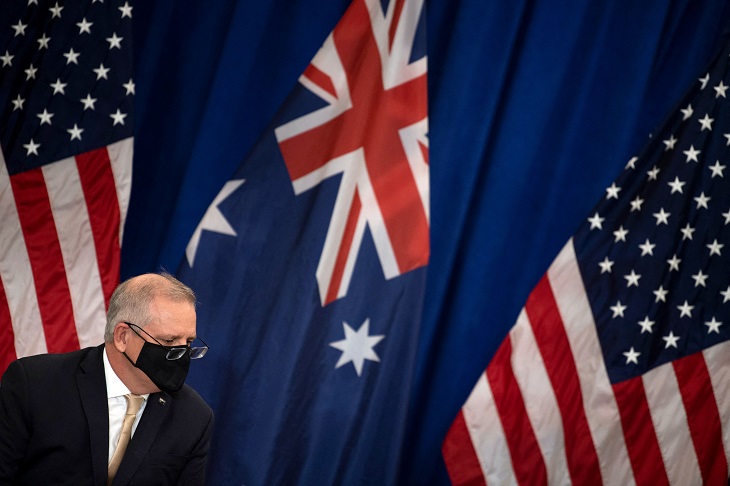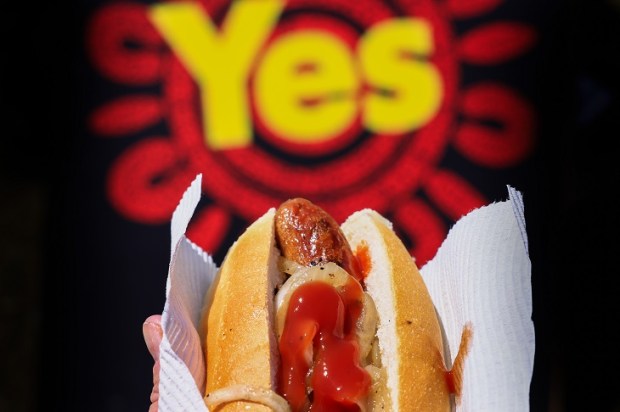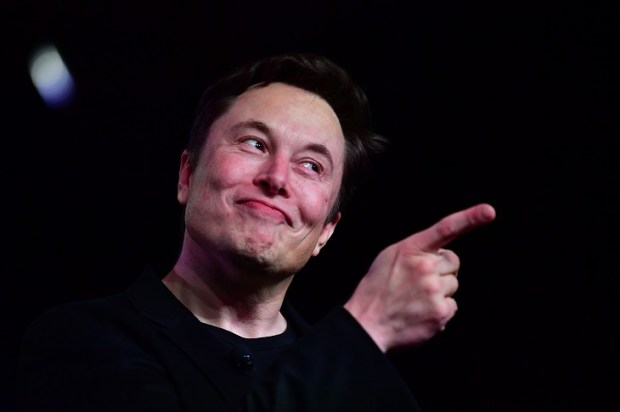Australia’s first foray into international politics occurred in the shape of Billy Hughes.
Has there ever been such a whirlwind force of Australian nationalism, or rather, a determined politician who caught onto the coattails of nationalism? Hughes knew he could not return to Australia without the three things his people expected of him.
Firstly, President Wilson must be persuaded to give him New Guinea. Secondly, President Wilson, Prime Minister David Lloyd-George, and the French Prime Minister Georges Clemenceau must make sure Germany paid indemnities, not just reparations, for the damage done but also Germany must pay individual countries for the cost of the war. Lastly, Japan must not be allowed to have a racial equality clause included in the covenant of the soon to be created League of Nations.
Hughes achieved one and a half out of three.
Hughes single-handedly stopped the racial equality clause by saying what nobody else, least of Wilson, was prepared to say. He never got indemnities for Australia, but certainly played a role in getting, much to John Maynard Keynes disapprobation, indemnities for everyone else. And he scored half for getting New Guinea, but as a mandate and not as the colony he wanted. Hughes was able to ameliorate his losses as far as his failure to get indemnities was concerned, as he had during the war achieved excellent trade deals for Australian produce such as England’s promise to buy Australian wool at 55 per cent above the pre-war price. Viewed as the work of racist imperialist, determination to have New Guinea paid off when the Japanese over-stretched themselves and were doggedly pushed back on the Kokoda Track over New Guinea’s Owen Stanley Ranges. Hughes was always certain friends in one war could be enemies in the next.
Later forays into international politics reached a high point with the work of Herbert Evatt in the 1940s. Seeing the United Nations could play a role in securing Australian security, he argued Australia should not align herself automatically with any major power, but rather work on a case-by-case basis. Like Hughes, first and foremost, his concern for Australian security was based on regional security.
Gough Whitlam’s efforts in the early 1970s to establish greater independence set him amongst the first of western leaders to visit China, some months before the American President Richard Nixon trod the same path, and Paul Keating’s visionary but short-lived 1995 Australia-Indonesia Agreement for Maintaining Security. Aside from this, Australia’s foreign policy has been a policy that has grappled with a determination to promote her own economic interests and a desire to save money on defence by securely positioning herself behind the United States.
It was the fall of Singapore in February 1942, followed by Britain’s inability to alleviate Australian fears of Japanese attack, that pushed Labor Prime Minister John Curtin ‘without any inhibitions of any kind … (to ) make it quite clear that Australia looks to America, free of any pangs as to our traditional links or kinship with the United Kingdom’.
After the war, Australia fell in line with the United States, more so than any other country. We followed her into wars in Korea, under the umbrella of the United Nations, into Vietnam, into the Gulf War, and after 9/11 back into Iraq again and Afghanistan earning the description (when China was particularly displeased with her) as ‘America’s dog’.
Any recent contributions Australia has made in international politics can always be seen as contributions that could have been made at the behest of the United States, whether they were or not has become immaterial. From pushing for an independent international inquiry into the beginnings of Covid in April 2020 to reaffirming a commitment to the quadrilateral cooperation between Australia, India, Japan, and the United States (the Quad) in May, 2021 Australia has rarely, if ever in recent history, acted alone on a major foreign policy. In doing so, Australia has put herself in a dangerous position.
So, what is to be done?
Economically, we are tied to China. Militarily, we are tied to the United States.
As the world swings on a new political hinge thanks to Putin looking to rebuild the great Russian empire, Australia finds herself fully committed to supporting, where she can, America’s efforts to lead most of Europe against Russia. We hope Putin has over-stretched his resources, we hope China is watching and learning what not to do when it comes to bringing an unwilling people back into the Chinese fold, we hope by standing firmly behind the United States when push comes to shove the United States will stand firmly behind us. Perhaps the only way to do this is to have more Pine Gaps, host more American troops, tell China without doubt they are right to think we are, whilst not America’s dog, very much America’s friend. To follow the example of China’s smaller Asian neighbours who have centuries of experience of getting along with their large neighbour instead of positioning ourselves so irrevocably in the opposite camp… Will it take another major worldwide conflagration before Australia sends a politician out onto the world stage to speak up for us? How much should the decision of the Solomon Islands to go ahead with a security agreement with China remind us of Hughes and Evatt’s concerns about regional security?
For first and foremost we should recognise our geographical position – reflecting Keating’s ‘in Asia, not from Asia’ and Hughes’ belief whoever controls Australian waters controls Australia. Whilst we may not like what and how Hughes said, it is hard not to admire that he stood upon the world stage and spoke up. He did so because the Australian Imperial Forces had earned us, him, the right. When President Wilson asked him if he meant to defy the whole world, Hughes knew he had sixty thousand reasons, sixty thousand dead Australians, to do just that.
Herbert Evatt stepped onto a more conciliatory stage, where good and evil were clearly labelled, and most of the world knew it. It was the beginning of the era of Bretton Woods ensuring seventy years of prosperity for the Western World, growing after the fall of the USSR in 1991 into globalisation, ensuring thirty years of prosperity for certainly not everyone but more people. Evatt’s idea of collective security seemed so much more possible after the second world war to how collective security had fared after the first world war. The United Nations was a stronger body, with more members and its own, voluntary, military.
The world looks like it’s changing now, and we don’t want to find ourselves in a position where the Morrison government’s decision to arm ourselves with nuclear-powered submarines should really have been a decision to arm ourselves with Turkish-made Bayraktar TB2 drones. In the same way Hughes might have incentivised Japan’s militarists, Morrison could be incentivising Chinese equivalents. We need a leader who can stand up on the world stage and be heard, not because he or she has earned it with the blood of young Australian men and women but because they want to stop that from happening. Whilst it’s exciting to play with the big guys we should remember where we are in the world and how to get along with our closer neighbours. We need to make better friends closer to home.
Australian people know their history, they know their wars, they know the costs, they know the myths, they know the heroes, but they also know words at the right time can stave off bombs. It can’t just be left up to the leaders of smaller countries, the Ukraine’s of the world, to make sense of where the world should be.
We’re big enough to step up and small enough to let the world know we can make sense of our world ourselves. All we need is a leader who is willing to do it.
Got something to add? Join the discussion and comment below.
Get 10 issues for just $10
Subscribe to The Spectator Australia today for the next 10 magazine issues, plus full online access, for just $10.

























Comments
Don't miss out
Join the conversation with other Spectator Australia readers. Subscribe to leave a comment.
SUBSCRIBEAlready a subscriber? Log in